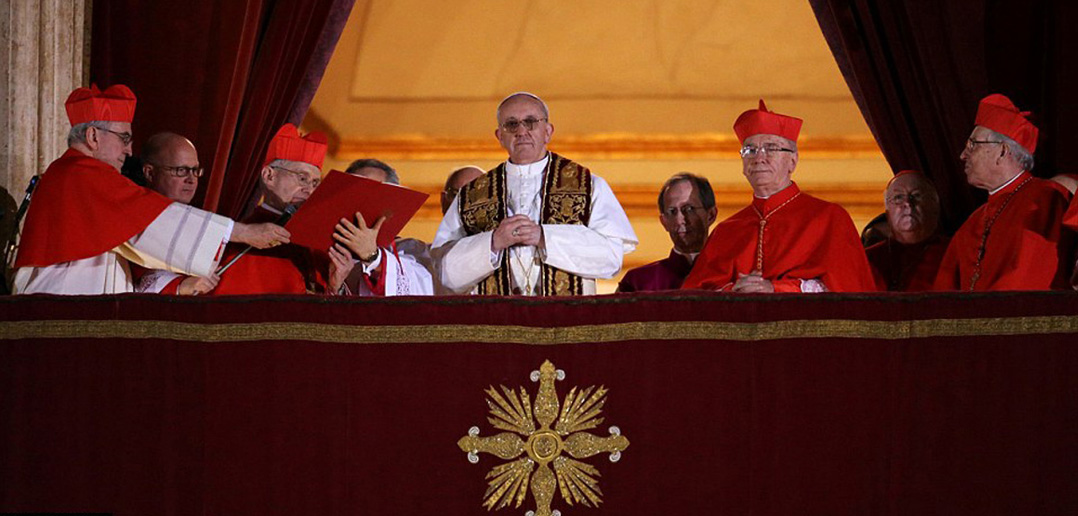Last night I watched the chimney of the Sistine Chapel from the moment I heard that white smoke was billowing from it, and I went on waiting into the night, for the revelation of the new Pope and his first address, live on television.
It’s not that I am Catholic, or even Christian, but I stayed glued to Vatican TV via BBC and CNN for two reasons:
First, to listen to the “expert” commentary and panel discussions around ‘which Cardinal would possibly emerge on the balcony’ – and their reasons for why the next leader of the Catholic church should be Italian, European, Non-European, African or even Asian.
Second, to listen to ordinary men and women on the ground talk about their reasons for being there and their expectations, and to watch their spontaneous, emotional reactions to the events and announcements in St. Peter’s Square and from the balcony of St. Peter’s Basilica.
So what’s the point of all this? The truth is, listening to the experts and the common man, gives us a perspective on not just the background and sentiment around the event itself (in this case the selection of the Pope), and it also gives us insights into larger public sentiment, and social, economic, and cultural trends.
Here’s what I learnt and how it has bearing on the world around us today:
He’s the first Jesuit and first non-European in this position in a very long time, and he’s the first ever to take the name Francis. He started his maiden address to the world as Pope, not by blessing the people, but by seeking their blessings for him. And his opening remarks included references to technology and evangelism.
Jesuits form one of the largest order of priests among Catholics who are known for working very hard, anywhere in the world, even under extreme conditions. And given the social and economic issues facing the world is today, we need leaders who are hard working, and not afraid to roll up their sleeves and get their hands dirty, in the trenches with their people.
Latin America is home to around 40% of the world’s Catholics, as against just around 25% in Europe. Yes, the world needs leaders who are homegrown, speak the local language, know the people, and understand local issues.
While Latin America is still dominated primarily by Christians, religion is on a decline amongst its youth. Any good marketer will tell you, you must hold on to your core markets, as well as go after the low hanging fruit around it. The youth of Latin America (like the rest of the world) need something to hold on to, and believe in, especially in hard times. Giving them a Pope who’s one of them, tells them that their Church must be doing something right – so why not give it another chance!?
Jorge Mario Bergoglio chose his Papal name keeping St. Francis of Assisi and his work for the poor in mind, rather than a patron saint of his own Jesuit order. This again showcases the fact that leadership can and must seek inspiration from the outside, and it has to make choices where the good of the people trumps everything else.
At 79, Cardinal Bergoglio was also an unlikely choice, given the fact that his 76-year old predecessor cited age as one of his reasons to resign. And then Pope Francis spoke of technology and evangelism – two concepts (buzzwords?) that have captured the imagination of the youth and societies of today. The way I see it, is old world wisdom is best served via technology and spread with evangelism, rather than only with from-the-pulpit speeches.
And finally, by seeking the blessings of the people first, Pope Francis humbly acknowledged the fact that leadership cannot work without the blessings and participation of the people. And that we all have something to give others, even if it’s just a prayer, and even that can go a long way in building long and fruitful relationships together!
So there you have it – my reading of the signs that the election of Pope Francis gave out, and the arising learning for leadership around the world, irrespective of their religious beliefs.
I may have read too much into all this, and the reasons for Cardinal Bergoglio becoming Pope Francis election may have had nothing to do with any of the above at all. But I believe in signs. And I am always looking for some to tell me that despite all we see and hear around us, there are people who know what they’re doing (including the Iceman) – and the world is moving slowly, but surely, to a better place.
Amen.

agree with a lot of what you say, Nosh.
Reminded me of how the Miss World/Universe titles ‘seem’ to be used to carry influence about beauty and fashion in to new markets.
Thanks Dinesh! So true… but the 2012 Miss Universe was from the US. I guess America also needs reassurances nowadays 😉